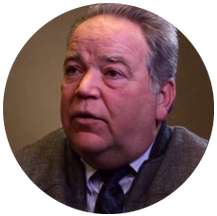It’s Holiday time at Maryhaven. We host special observances for staff and clients while juggling deadlines and days off to celebrate with friends, families and loved ones.
And we gear up to see more pathological gamblers who find the holidays challenging to their recovery.
With all the food, fun and families that make the Holiday’s special, we often overlook the quiet temptations and nagging sense of sadness that haunt many at this time. Opportunities to gamble seem endless, from well-meaning folks who give scratch-offs as stocking stuffers to office betting pools that escalate as the football play-offs loom. Even holiday getaway trips can be dangerous if the travel includes casinos, resorts or cruise ships where gambling is part of the milieu.
And then there are the financial pressures. For someone in recovery, budgets may be tight and resources precious. The added financial pressure to buy loved ones gifts can feel overwhelming.
Ironically, year-end festivities can actually boomerang on a pathological gambler in recovery, increasing the odds of suffering depression, withdrawal and even suicide.
Jim Maney, executive director of the New York Council on Problem Gaming, offered some tips on how problem gamblers can avoid holiday gambling addiction triggers. While helpful all year round, they ring especially true this time of year:
Budgeting – If you are a newly recovering gambling addict, you may have already put someone else in charge of your finances. You can quickly add this strategy if feeling vulnerable and/or take steps to make sure you cannot access surplus funds or any significant amounts of cash.
Family Gathering Decisions – Request that family and friends refrain from gambling when playing games together this holiday season. Enjoy card games without betting on hands or winning pots. If temptation continues even without actually gambling, don’t play these games at all. It’s critical to avoid dwelling on memories of past gaming activity and the “highs and lows” associated with wins and losses.
Avoid Dangerous Gifts – Similarly, ask people to refrain from giving cash or scratch-off tickets as holiday presents. Both could trigger the urge to for “just one more bet,” thinking that quickly spirals down into addictive behavior.
Know Yourself – Remember and steer clear of the thinking and behaviors that either led to or were part of your life as a gambler. This may mean monitoring or eliminating alcohol intake, skipping vacation day trips to casinos with friends, and filling extra vacation time with new hobbies or activities to avoid feeling bored or lonely.
In fact, boredom and loneliness should be seen as major warning signs. The National Council on Problem Gambling found that no other addiction has as high a suicide rate as gambling. They estimate that one in five gambling addicts will attempt to kill themselves, about twice the rate of other addictions.
Holidays can and should be a wonderful time in our lives. They can free us to reflect and find renewed hope and determination to change for the better. That makes this time of year one of the best times to finally admit to a gambling problem and seek help. That’s where Maryhaven comes in.
Maryhaven’s One More Chance initiative helps pathological gamblers find a true second chance at life. Visit our website and learn more about education and treatment services available from our team of experts. And remember, we’re here for families too. Even if your loved one isn’t ready to quit, we can help families cope with the anger, frustration, grief and financial realities of living with problem gambling.
Give yourself or someone you love a real gift this Holiday Season. Call us at 614-324-5425 or fill out our online form today.

